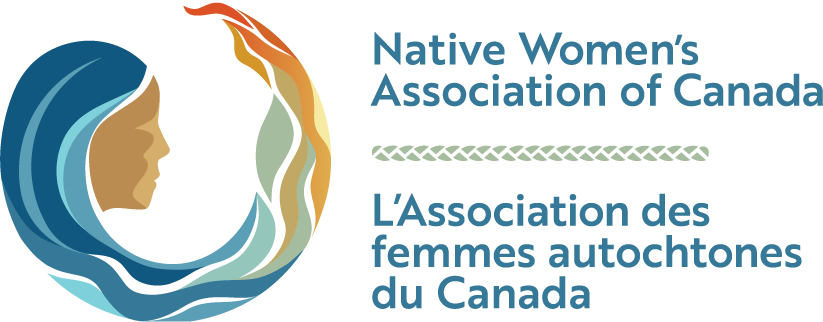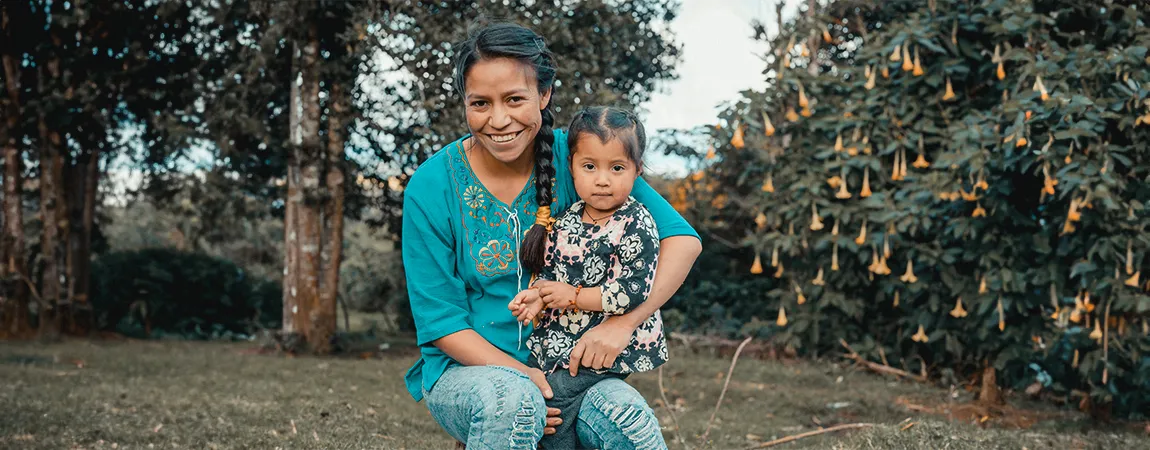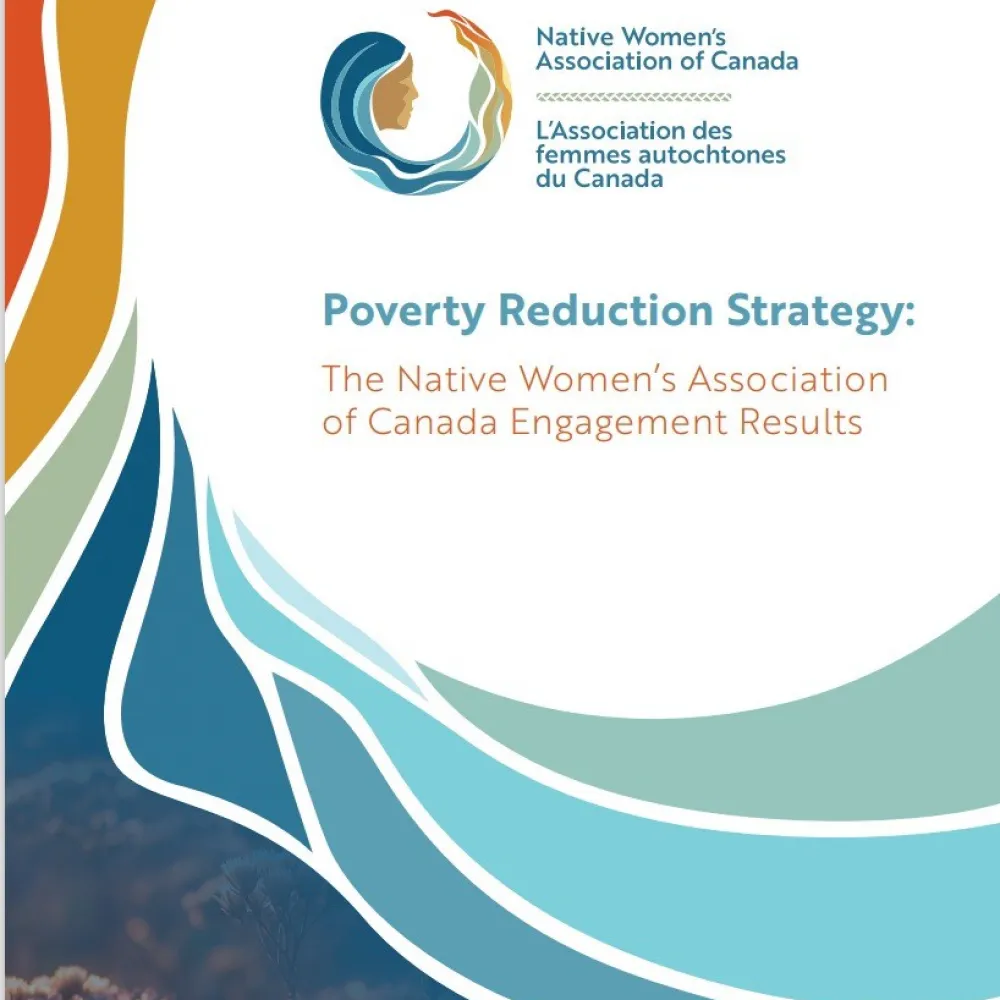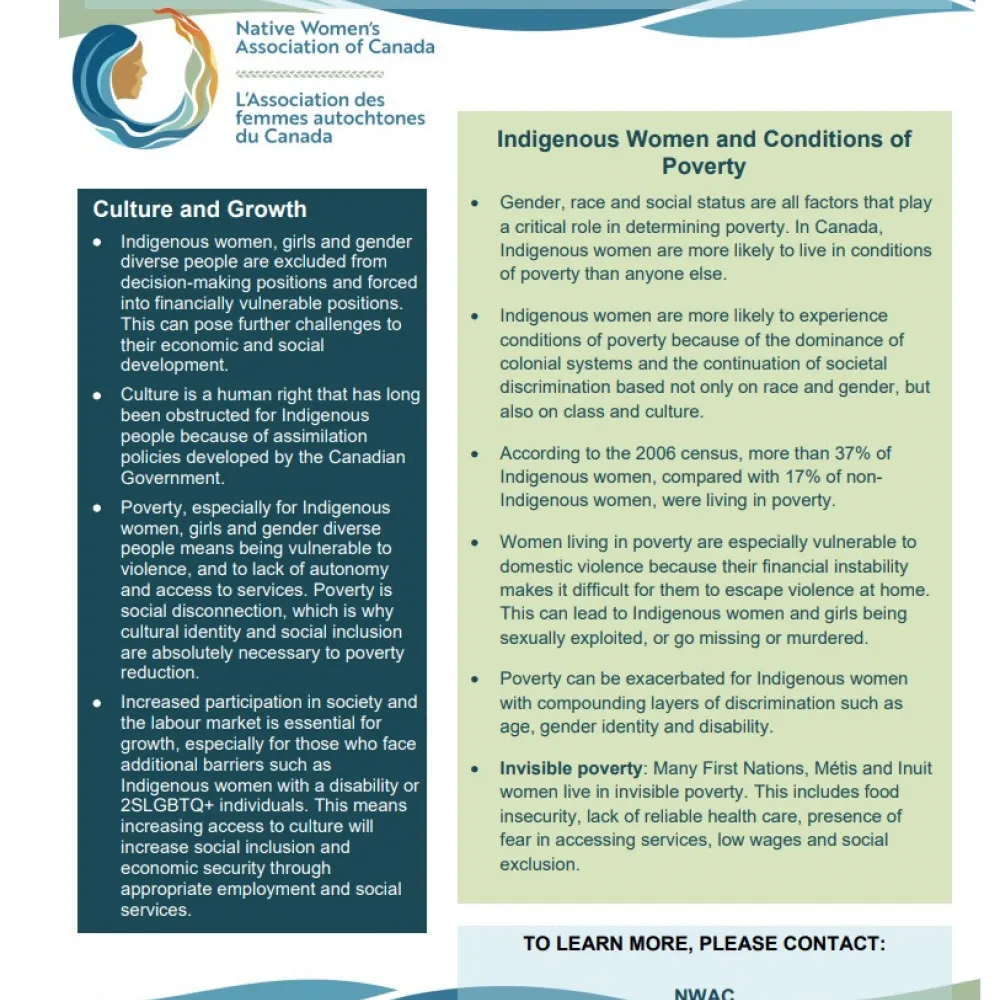Summary:
Adverse conditions of colonization and current paternalistic government approaches have created an environment where Indigenous Women, Girls, Two-Spirit, Transgender, and Gender-Diverse Peoples are politically disenfranchised and economically marginalized. This leads to exclusion from decision-making positions and financial vulnerability.
Decades of worldwide research proves that important connections in access to culture directly affects poverty. Poverty, especially for Indigenous Women, Girls, Two-Spirit, Transgender, and Gender-Diverse Peoples, increases vulnerability to violence, lack of autonomy, and reduced access to services. Poverty leads to social disconnection, which is why cultural identity and social inclusion are necessary for poverty reduction.
In 2017, NWAC conducted research on poverty reduction. A lack of access to land, water, cultural supports, and social services—such as mental health and housing—were identified as main concerns. A need for prioritizing Indigenous-centered services and holistic approaches for services were also identified. These are all necessary to build resiliency and reduce poverty for Indigenous Women, Girls, Two-Spirit, Transgender, and Gender-Diverse Peoples.




